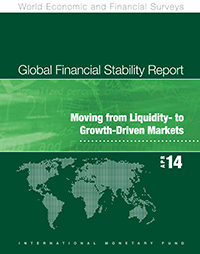Fontagné, L., Mohnen, P. and Wolff, G. (2014), ” No Industry, no Future?“, Bruegel, 19 June. In a context of weak growth, high unemployment, unbalanced public finances and persistent external deficit,we are witnessing the return of a proactive approach to industrial policy and, even in France the return of direct intervention in industry. Sector-focused public intervention is thus once again conceivable, while industry is once more perceived as a reservoir …Read More
A ‘Brexit’ would have important implications at the European and international levels
Oliver, T. (2014) “A ‘Brexit’ would have important implications at the European and international levels“, LSE EUROPP, 24 June. The implications of a ‘Brexit’ for the UK have been widely discussed, but the implications for the EU and other international powers have arguably received less attention. Tim Oliver explores the complex set of possibilities and implications at the European and international levels that both the UK and EU need …Read More
Transmission of liquidity risk through global banks: An International Banking Research Network project
M. Buch, C., Chapman, J. & Goldberg, L. (2014) “Transmission of liquidity risk through global banks: An International Banking Research Network project“, VoxEU Organisation, 24 June. The international transmission of liquidity shocks is one of the key questions of banking globalisation. This column discusses a project of central bank researchers from around the world who have been exploring the role of global banks in the transmission of liquidity shocks. …Read More
What a Drag: The Burden of Nonperforming Loans on Credit in the Euro Area
Kerry, W., Portier, J., Ruggerone, L. & Verkoren, C. (2014) “What a Drag: The Burden of Nonperforming Loans on Credit in the Euro Area“, iMFdirect, 23 June. High and rising levels of nonperforming loans in the euro area have burdened bank balance sheets and acted as a drag on bank profits. Banks, striving to maintain provisions to cover bad loans, have had fewer earnings to build-up their capital buffers. This …Read More
Global Financial Stability Report – Moving from Liquidity- to Growth-Driven Markets
International Monetary Fund (2014) Global Financial Stability Report – Moving from Liquidity- to Growth-Driven Markets, World Economic and Financial Surveys, April. The April 2014 Global Financial Stability Report (GFSR) assesses the challenging transitions that the global financial system is currently undergoing on the path to greater stability. Chapter 1 finds that these transitions are far from complete, and stability conditions are far from normal. For advanced and emerging market economies …Read More
Social Europe In A Climate Of Austerity, The Need For Social Dialogue To Improve Distribution
Pissarides, C. (2014) “Social Europe In A Climate Of Austerity, The Need For Social Dialogue To Improve Distribution“, Social Europe Journal, 23 June. Eurofound stands for Improvement of Living and Working Conditions through social dialogue. Currently, in the midst of high unemployment and increasing inequality, living and working conditions for ordinary people are worse than in 2007. But recession is not the only problem. Even when countries are recovering, …Read More
The Tragedy of the Euro
Bagus, P. (2010) The Tragedy of the Euro, Mises Institute. The current sovereign debt crisis is the direct result of credit expansion by the European banking system. In the early 2000s, credit was expanded especially in the periphery of the European Monetary Union such as in Ireland, Greece, Portugal, and Spain. Interest rates were reduced substantially by credit expansion coupled with a fall both in inflationary expectations and risk …Read More
The Fund’s Lending Framework and Sovereign Debt—Preliminary Considerations
International Monetary Fund (2014) “The Fund’s Lending Framework and Sovereign Debt—Preliminary Considerations“, IMF Staff Report, 13 June. EXECUTIVE SUMMARY Background: As a follow-up to the Executive Board’s May 2013 discussion, this paper considers a possible direction for reform of the Fund’s lending framework in the context of sovereign debt vulnerabilities. The primary focus of this paper relates to the Fund’s exceptional access framework, since it is in this context …Read More
Real wages, monetary policy and innovation
Wren-Lewis, S. (2014) “Real wages, monetary policy and innovation“, Mainly Macro Blog, 22 June. In my drive into Oxford I pass a petrol station that offers a car wash service. Ten or twenty years ago you would have expected this to involve a large degree of automation. However in this particular case it involves a few workers with hoses, mops and buckets. Now anyone who has seen my own …Read More
Long-Term Damage from the Great Recession in OECD Countries
Ball, M. L. (2014) “Long-Term Damage from the Great Recession in OECD Countries“, NBER Working Paper No. 20185, May. This paper estimates the long-term effects of the global recession of 2008-2009 on output in 23 countries. I measure these effects by comparing current estimates of potential output from the OECD and IMF to the path that potential was following in 2007, according to estimates at the time. The losses …Read More





